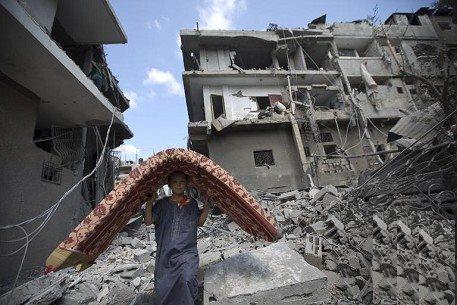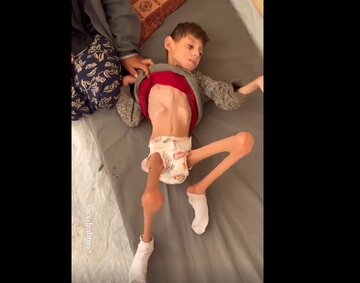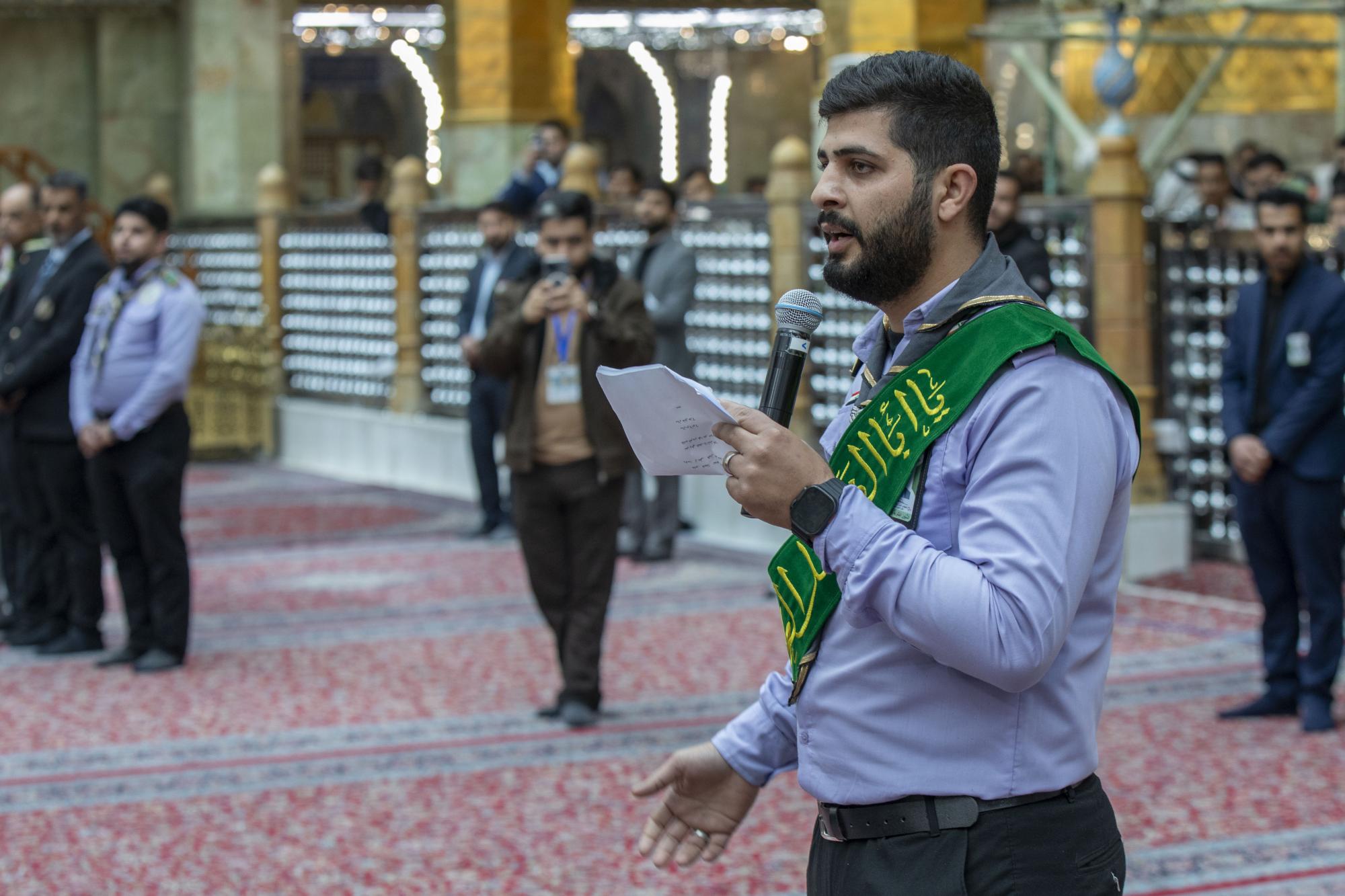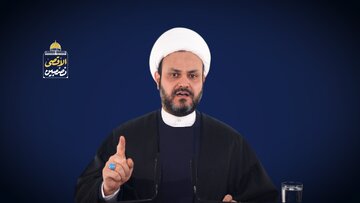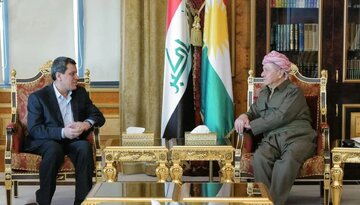Israel continued its bombardment of the Gaza Strip early Sunday, killing three Palestinians across the besieged coastal enclave as Cairo ceasefire negotiations stalled amid the Israeli withdrawal of its delegation.
Overnight airstrikes primarily targeted the southern cities of Rafah and Khan Younis, killing three -- including a thirteen-year old girl and a fourteen-year old boy -- and injuring dozens as the toll in the 34-day Israeli assault reached 1,917 with more than 9,840 injured.
Palestinian negotiators warned they would leave ceasefire talks in the Egyptian capital if no Israeli delegation showed up, with one senior Palestinian setting a 3 p.m. deadline.
"We have a meeting tomorrow (Sunday) with Egyptian (mediators). If we confirm that the Israeli delegation is placing conditions for its return, we will not accept any conditions," lead negotiator Azzam al-Ahmed told AFP.
But an Israeli official told AFP that talks could not take place until Palestinian rocket fire came to a halt. Militants launched 25 rockets into Israel on Saturday, causing no damage as Israeli airstrikes killed at least 10.
Britain, France and Germany on Saturday urged Israel and Hamas to agree to an immediate ceasefire.
But the Palestinian delegation has refused to return to the pre-conflict situation, when an eight-year Israeli blockade from air, land, and sea crippled Gaza's economy and led to recurring shortages of basic commodities as well as nearly complete restrictions on travel.
Palestinian factions have insisted that Israel end the siege on the Gaza Strip, release dozens of prisoners whom Israel has re-arrested that were released in 2011 as part of the Shalit exchange, re-open a seaport and airport in Gaza, and create a safe passage between the West Bank and the Gaza Strip.
A Hamas leader, Mussa Abu Marzouq, warned that the next 24 hours would be crucial.
Israel "is stalling and the next 24 hours will decide the fate of the negotiations," he said late Saturday.
"We will not hold talks for a long time without serious discussions," he added, calling Israel's attitude "not serious."
"We do not want an escalation, but we will not accept that there is no reply to our demands."
Earlier, the secretary-general of the Palestinian delegation told Ma'an that Israel had attempted to include the issue of two captured Israeli soldiers' bodies in the negotiations.
Bassam al-Salihi said that Israel had offered to release Palestinian prisoners in exchange for the bodies of the two soldiers, which it is suspected may be in the hands of Hamas militants.
Al-Salihi said, however, that the delegation had refused to talk about the issue. The Hamas-affiliated Al-Qassam Brigades earlier claimed responsibility for capturing Israeli soldier Oron Shaul, but denied any knowledge of Hadar Goldin's whereabouts.
Israel has said that both soldiers were killed in action with Palestinian militants in Gaza but that it did not know the whereabouts of their bodies.
447 children killed
The Cairo talks broke down on Friday after Hamas accused Israel of stalling and refused to extend a 72-hour ceasefire, setting off renewed hostilities that left 10 Palestinians dead on Saturday as Israeli warplanes battered Gaza with 50 air strikes.
The last month's fighting has devastated swathes of Gaza, with the United Nations saying at least 1,354 of the Palestinians killed have been civilians, including 447 children.
Israel says it has carried out more than 100 strikes in Gaza since Friday morning.
On Sunday morning, 14-year-old Ahmad al-Masri was killed in an airstrike on Deir al-Balah in the central Gaza Strip.
An airstrike in northern Rafah early Sunday killed a Palestinian man after a missile landed near a group of people.
In Khan Younis district, Israeli airstrikes hit home of Ayman Baraka in the town of Bani Suheila. His wife Amani, 35, was killed and Baraka was injured along with a number of his family members.
Earlier on Sunday morning, an airstrike hit the home of the al-Dali family in al-Ghawafir neighborhood in al-Qarara village east of Khan Younis.
Another attack from the air landed in a military training center for Hamas' military wing al-Qassam Brigades. Material damage was reported in both attacks but no human casualties.
Israeli warplanes also targeted for a second time in two days the Shuhada mosque in Nuseirat refugee camp in the central Gaza Strip, destroying the mosque completely.
A series of airstrikes early Sunday targeted the area near the Egyptian border in Rafah in the southern Gaza Strip, causing material damage to nearby Palestinian homes but no casualties, according to residents.
Ten Palestinians were injured also Sunday morning by an Israeli airstrike targeting a home in Jabaliya refugee camp in the northern Gaza Strip. Ministry of Health spokesman Ashraf al-Qidra said that some of the injuries were serious, adding that ten people were evacuated to Kamal Adwan hospital in Beit Lahiya.
Late Saturday night, 13-year-old Ayah Anwar al-Sher was killed in an Israeli airstrike on her family home in Rafah.
Protesters fill London and Cape Town
Palestinian foreign minister Riyad al-Malki meanwhile said his government would soon try to haul Israelis before an international court for war crimes.
"We will go to the ICJ (International Court of Justice), and put our signature on it. Very soon we will be a (sovereign) state. That is enough for the court to start an investigation," Malki told AFP on a visit to Colombia.
In London, up to 150,000 protesters packed Oxford Street on Saturday, marching to the US embassy and on to Hyde Park, many of them chanting "Free, free Palestine" and holding up banners saying "UK -- Stop Arming Israel."
Tens of thousands of demonstrators also marched through Cape Town to protest the Israeli military operation, one of the biggest rallies in the city since the end of apartheid.
The lifting of Israel's land and sea blockade, imposed in 2006 after Hamas won democratic elections, has been a key demand of Hamas and the Palestinian Authority in the Cairo talks.
A Palestinian official said on condition of anonymity that Egypt and the Palestinians had reached a draft agreement for submission to Israel.
It would see Egypt and the Palestinian Authority take control of the Rafah border crossing into Egypt, essentially activating part of a unity accord Hamas signed with the PA in April.
Negotiations on the sea port, demanded by Hamas, would then be delayed and entrusted to the PA, with whom Israel is prepared to deal.
Israel says that it launched the conflict to destroy Hamas' arsenal of rockets and its network of attack tunnels.
But combat has not resumed at the same fierce intensity, feeding hopes that a new truce could be agreed.
"Our hope is that the parties will agree to an extension of the ceasefire in the coming hours," US State Department spokeswoman Marie Harf said.
Chris Gunness, spokesman for the UN agency for Palestinian refugees (UNRWA), called for the Gaza blockade to end so reconstruction can begin.
"Huge swathes of Gaza have been leveled. We cannot rebuild it with our hands tied behind our backs," he said. "The blockade must end."
At least 65,000 people have had their homes destroyed, and UNRWA said 222,000 people are still sheltering in UN-run schools after around a third of Gaza's total population was displaced earlier in the conflict.
/129

